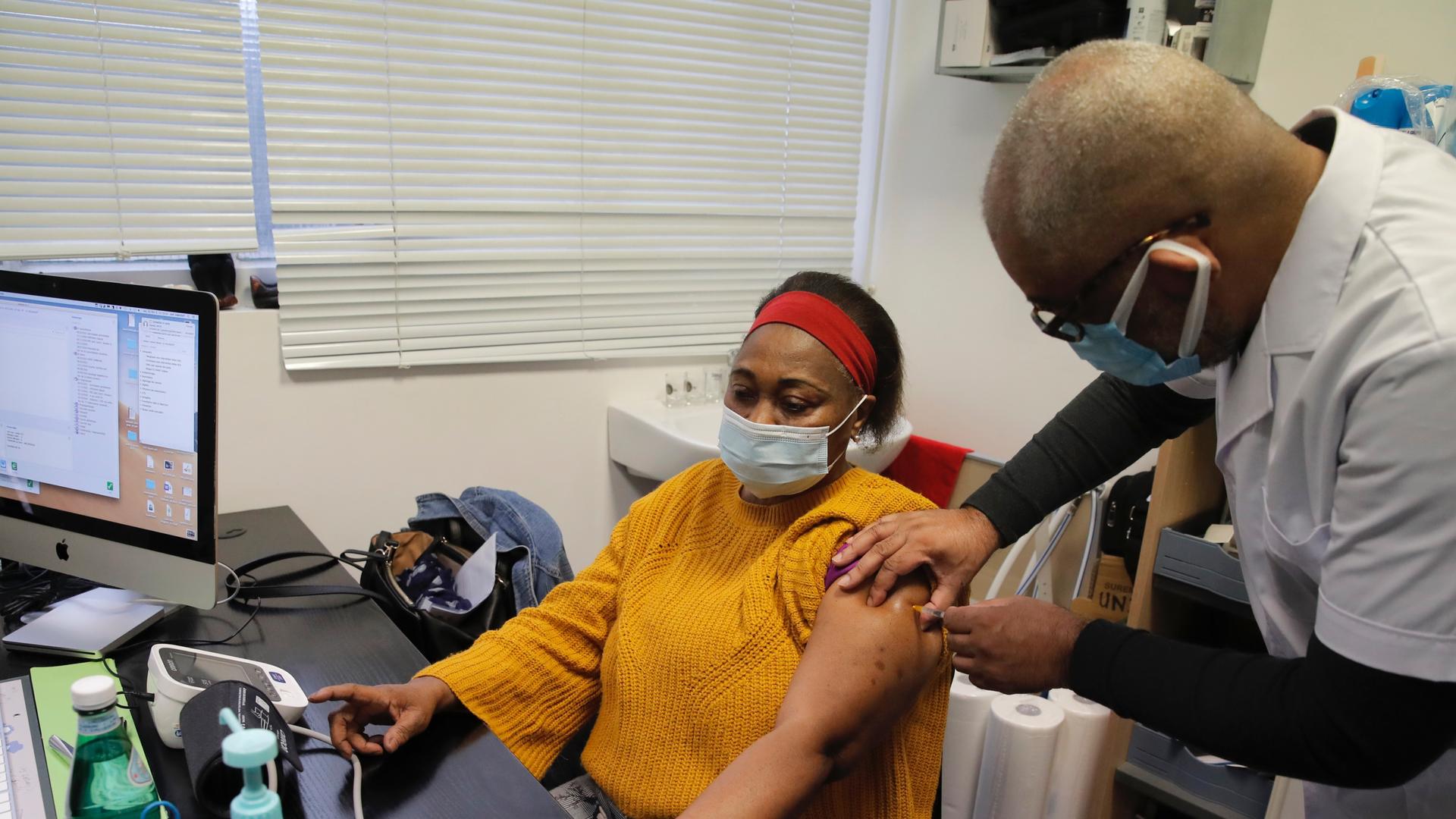With one of the most vaccine-skeptic populations in the world, France has its work cut out for its vaccination campaign.
According to recent polls, only 41% of the French population says they are “sure” they want to receive a COVID-19 vaccine.
To boost the public’s confidence, the French government is doing something different: putting power in the hands of everyday citizens to help oversee the country’s vaccine rollout.
Related: British celebs, religious leaders fight vaccine hesitancy in minorities
In November, French President Emmanuel Macron announced the creation of a citizens’ collective: 35 people chosen at random, coming from different geographic regions of the country, different socioeconomic backgrounds and different opinions about vaccines.
The concept falls under the country’s Economic, Social, and Environmental Council (CESE), a third branch of government designed to boost the public’s participation in democracy.
The collective’s job is to spend several months meeting with some of the country’s top scientists, vaccine strategists and other health experts, then provide recommendations, which are nonbinding.
“I feel like I have a duty to convince more than half the population that this vaccine is safe.”
“I feel like I have a duty to convince more than half the population that this vaccine is safe,” said Philippe, a bus driver who said he jumped at the chance to participate in the collective. None of the members of the collective are using their last names publicly.
Because of serious health problems, Philippe was among the first to get vaccinated but said he was shocked when the nurse administering his vaccine confided that she had doubts about taking the vaccine herself.
Related: Dual citizens in Mexico seek vaccine options in the US as rollout lags
That’s when he realized the government needed to do a better job in getting its message across about vaccine safety, he said.
The collective began meeting in late January and will present their first recommendations in mid-March.
About half of its members say they came into the project as vaccine skeptics. The inclusion of skeptics initially drew criticism that the government was appeasing — even validating — France’s anti-vaccination population.
But others insist it’s a necessary move.
Marie is a member of Les Vaxxeuses, a group of several hundred volunteers fighting disinformation about vaccines on social media. The group’s members only use their first names because some have received death threats.
She’s spent the last few months dispelling all kinds of rumors about COVID-19 vaccines.
“You see some really strange stuff, like [the vaccine] will put microchips under your skin to remote control you.”
“You see some really strange stuff, like [the vaccine] will put microchips under your skin to remote control you,” she said.
She believes a lot of people’s concerns come from a fear of the unknown. By putting more everyday citizens — even the skeptical ones — at the center of the action, the government is building something essential: trust.
Related: Wary of coronavirus vaccines, some Chinese citizens are ‘opting out’
“People will have more trust in the vaccine as opposed to if [the collective] was just made up of scientists,” she said.
Regaining the government’s trust is still likely to take time. A series of scandals in the 1990s and early 2000s have severely hurt the Health Ministry’s reputation.
In 1991, it was revealed that the government knowingly administered transfusions to 1,200 hemophiliacs with blood from people who were HIV-positive hemophiliacs. Hundreds died as a result. While three ministers were charged with manslaughter, only one was found guilty and received no jail time.
The government was also heavily criticized for its oversupply of vaccinations during the 2009 H1N1 epidemic. The country bought 94 million doses of the vaccine, but less than 6 million were ultimately vaccinated.
That’s in part why many scientists are supporting this effort alongside the traditional scientific approach.
Related: South Africa changes course on vaccine rollout after disappointing study
“[The collective’s] one of several ways that we can convince the French people to get vaccinated.”
“It’s one of several ways that we can convince the French people to get vaccinated,” said Michel Nahon, an emergency room doctor based in the Paris suburbs.
“The fact that more than 4% of the population has been vaccinated shows something is working.”
Though that progress is going to have to speed up in order to meet the government’s goal of vaccinating all of the country’s 67 million people by the end of August.
Our coverage reaches millions each week, but only a small fraction of listeners contribute to sustain our program. We still need 224 more people to donate $100 or $10/monthly to unlock our $67,000 match. Will you help us get there today?
